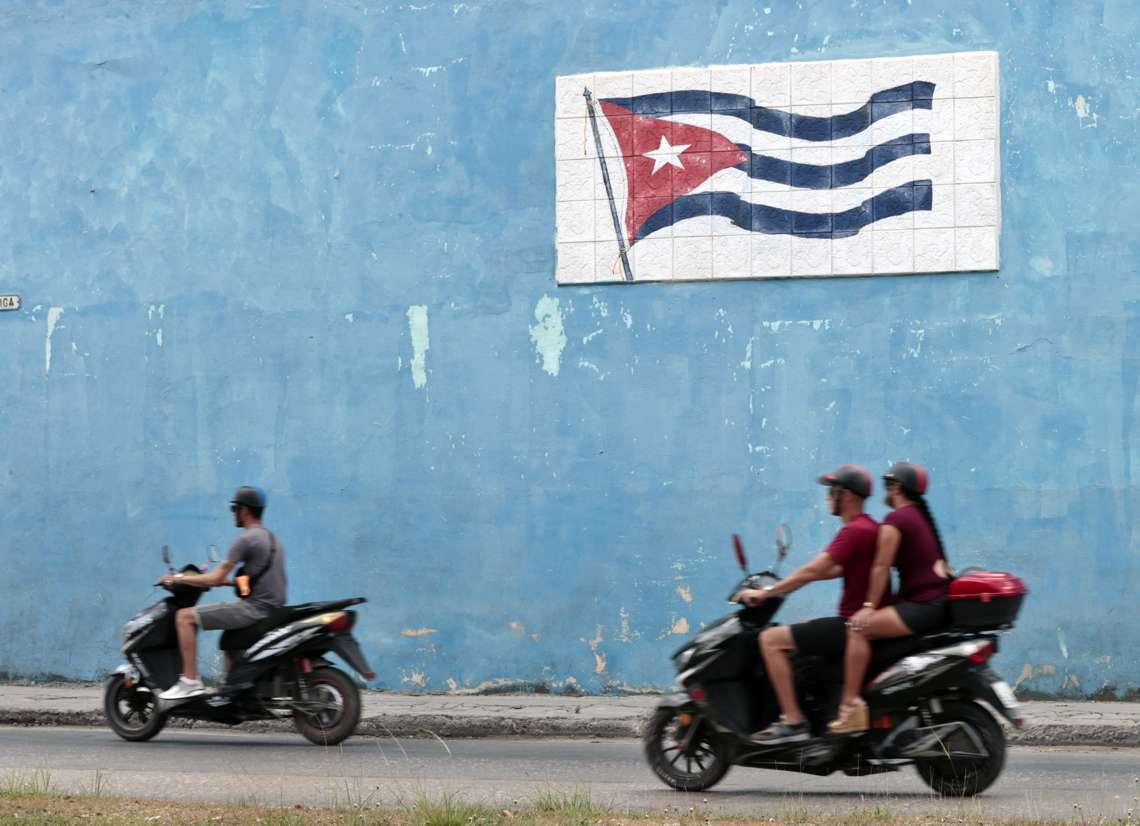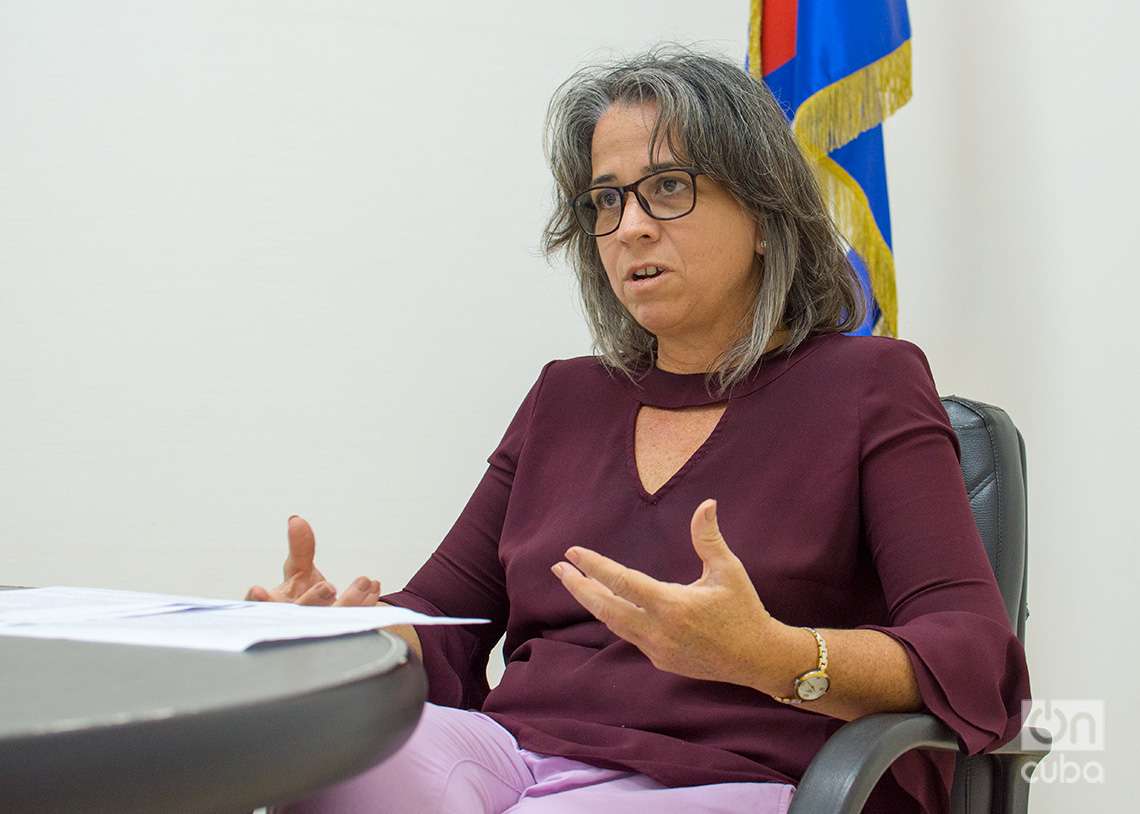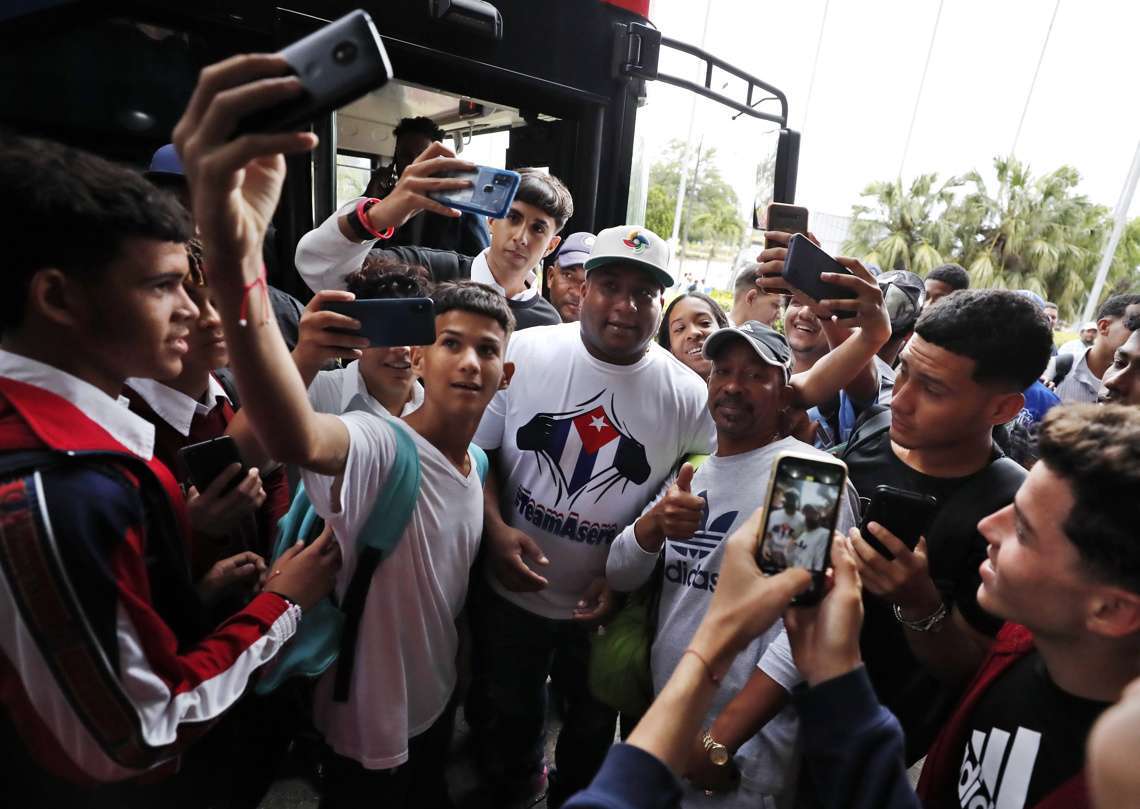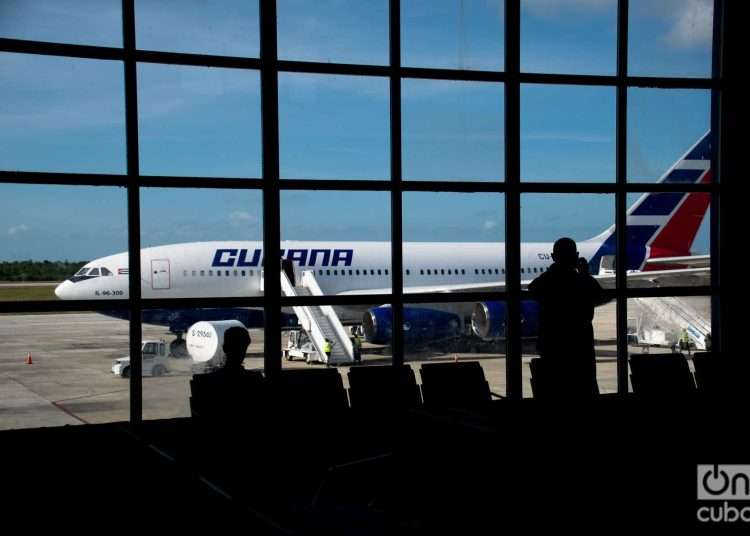In the last decade, the Cuban authorities have approved measures and introduced changes in immigration policy. The extension to 24 months of permanence outside the country without losing residence and the possibility of starting ventures on the island for those who reside abroad are among the modifications implemented by the government.
The objective, as the authorities have reiterated, is to “expand and strengthen ties with the Cuban community residing abroad” and to continue, in a “gradual but sustained” manner, with the first exchanges with Cuban émigrés in the late 1970s.
However, claims persist among Cubans residing outside the island. For example, an adjustment in the price and validity period of the passport, greater participation in the socioeconomic and political life of the country, and the elimination of entry restrictions to Cuba.
At the same time, the promulgation of the new Magna Carta in 2019 and the need to adjust the laws and regulations to the constitutional text, as well as the crisis scenario, generate expectations and concerns among Cubans wherever they are.
OnCuba spoke with Laura Pujol, Cuban Foreign Ministry’s deputy director general of Consular Affairs and Attention to Cubans Resident Abroad, on these and other related topics as part of an interview in which we also addressed the impact of transnationality on the Cuban family.
As announced, part of the current legislative timetable, new laws related to citizenship, migration and passport have to be passed. Will they entail substantial changes to what is in force?
Indeed, the approval of both the migration, aliens and passport law, as well as the citizenship law is expected. Both are scheduled in the calendar of the new legislature of the National Assembly and are in the process of consultation.
As for the changes, let’s keep in mind that the citizenship law is from 1947 and, of course, completely outdated. The one on migration is from 1976, although it has been modified later, but the hard text is from that year.
The new laws are going to bring many changes and the changes are going to be tempered with the new Constitution so that it is fully implemented in the laws that are promulgated.
There cannot be the slightest thought that these laws are going to create a setback in the relationship with emigration. Quite the opposite. These laws, like everything that has been done, are going to take a further step forward in those ties.
This legislature is to approve both texts and our job is to influence so that it does so. So that, based on these laws, our government’s policy of rapprochement with emigration is promoted and to favor a better contribution from those who reside abroad in all aspects of the country’s life.
Does this mean that the new laws and regulations will respond to the demands of emigration on issues such as passports, or restrictions on entry into the country for certain people?
Our intention is to work with the proposals and requests that we have, and that we know perfectly well, from our emigrants; to move forward with legislation that takes these demands into account. We are working to make it so, but the deadlines do not depend on us.
I cannot say that the law will be ready tomorrow or the day after, but the idea is that these requests are taken into consideration, not only the price of the passport, for example, but also the matter of simplifying and streamlining consular services, because it’s not just how much the document itself costs, but how long it takes to issue. These are things that worry us.
All this is being contemplated and, as far as we are concerned, what corresponds is to work so that all these things are undertaken to the extent that conditions allow it. Because many times our ideas are clear, we want to do certain things, and when we get to the moment of implementation it becomes difficult due to reality itself.
We are working, for example, on the subject of issuing documents outside of Cuba, with the possibility that exists through the portal of the Ministry of Justice to issue the documents. And well, because we cannot use international gateways for the payment of taxes for the admission of documents, implementation is difficult for us.
In any case, we are going to do it, because we already understood that we have to develop despite the U.S. blockade. What happens is that they are really important obstacles. What could be done in two years takes us ten years. Those obstacles slow us down and make us look inefficient. They are effective at it. But we continue to insist, working little by little, to make progress.
Cubans in times of “parole”: the island’s new migratory experience
As for the repatriation, there have been complaints about the delay by emigrants who are in the process. At what stage are these processes?
During the pandemic, all processes practically stopped, they slowed down. At no time was there a decision to stop anything, but it was life that led us to that, because the people who carry out these processes, the very dynamics of those processes, require a level of response that we did not have at that time. However, the policy remains unchanged and the procedures have been resumed, to the extent of the working conditions we have.
It is known that the territorial units, which are the ones that carry out the repatriation processes, are tense in relation to the number of procedures and requests they have in other matters. And they have been prioritizing those that are most in demand. Logically, this makes repatriation processes take a little longer. But, I repeat, there is no idea of stopping or changing what is established in this direction. On the contrary, the idea is to promote it, because it is something positive for the country.
On the other hand, as the time spent outside the national territory has been extended indeterminately due to the pandemic, this has created a buffer of people who, although they have spent more time than established, have not lost their resident status in the country. This moratorium is maintained, which reduces the need to repatriate because these people have not fallen into the status of emigrants.
A central issue in Cuba’s foreign policy and in the ties with its emigration is the relationship with the United States. Do you see a trend towards a possible improvement, based on the rapprochements that have occurred since last year, including three rounds on immigration issues?
Cuba is actively working in this regard, but it does not depend only on us. We believe that this improvement is what should occur; otherwise, it is total madness. It is something that harms both Cuba and the United States, but they have to realize that they are not doing well that way. In other words, [the policy of hostility] hurt us a lot and continues to hurt us, but it also hurts them.
Regarding the impact on the Cuban community, neither the restriction on travel, nor on remittances, nor on consular procedures, nor other measures and prohibitions have been imposed by Cuba, but by the United States.
Our policy with Cubans residing abroad has always been to take steps to embrace, steps to receive, steps to heal, and steps to strengthen ties. And all these measures that were imposed on us from the United States, with the intention of attacking us, of politicizing the immigration issue, have undoubtedly affected the transit we were experiencing.
It is in the best interest of both countries to have civilized migratory relations, in accordance with the vicinity we have, the historical ties and the progress that has been made. It has been shown that we can mutually keep our commitments, respect each other and have a less dysfunctional relationship.
What is not going to happen is that we give up our sovereignty in exchange for that, nor that we renounce the dignity and principles that we have maintained for more than sixty years. Cuba can be a free and independent country and maintain civil relations with the United States. We are willing to work to make it so.

You were referring to the politicization of the immigration issue by the United States, but there are those who speak of the politicization of the issue by the Cuban government. To what extent can it be a dividing element in relations with the Cuban community abroad and among Cubans themselves?
The politicization of emigration is not in the interest of our government. It is something that harms the Cuban family and that is not our intention, which does not mean that it could not have happened in the past.
It has been shown that the vast majority of Cubans who leave the country do not do so for political reasons, but for economic reasons, for family improvement. And taking those economic reasons to political reasons is not in our interest; it is in the interest of our counterparty. Everything that is done in this direction is done by our counterpart; that is, the United States government.
It may be that, along the way, as a reaction to aggression against our country, something happens that can be interpreted as a politicization of emigration, but it is not in our interest. Even if you look at the presence of Cuban emigration in the Cuban media, you can see how it has been gaining space and also another perspective, because at another time the subject was not discussed or it was done with a negative approach.
Now, on the other hand, it is mentioned and it is spoken of positively. We try to demystify this issue of the person who left Cuba and who does not want to return anymore, because we know that deep down the vast majority are not in that place. That is a fabricated commonplace, it is a fabricated perspective to hurt us, to harm us as a country, which, I repeat, has negative consequences for the Cuban family and it is not in our interest to promote that.

What is the interest of the Cuban government?
Our interest is to open spaces where all people can come together; create spaces so that everyone can participate, always with respect for our laws and the political system endorsed in our Constitution. And where there has been a will, progress has been made. There are examples, luckily, many, in art, music, the economy, sports. Also during the pandemic.
There are anecdotes regarding Cubans who were in other places during the pandemic and who contributed significantly to the development of our vaccines, based on the possibilities they had there. They did it spontaneously, altruistically, because they wanted to contribute to their country because they continued to feel Cuban and they cared about what was happening here.
I am not just talking about donations of inputs and implements for the vaccination processes, but also scientific knowledge, exchange for research into the development processes of our vaccine candidates and also other medical issues that occurred at that time with the COVID-19 care protocols.
In music, for example, when there is a Jazz Festival in Cuba, today we can see Cubans who live here playing together with Cubans who come from other countries, without saying where who lives because it doesn’t matter. That’s what’s nice. And in sports, there is a beautiful example of what happened in the World Classic, with the team that represented us with players who even live in the United States.
Returning to the issue of politicization, our team went to Miami and the ones who put together the show there were not us. We reacted maturely, with a lot of coolness to the provocations that were made to our delegation there. That doesn’t have to happen, but unfortunately, it did. It is a lesson they have to learn.
And in the case of political participation?
Also, because this is a transversal process, which has to cover all stages of society. How did the economic participation of Cubans residing abroad in the country’s economy begin? Informally, indirectly, through people who received money and put it into certain businesses. Today, legal channels already exist for the process to occur in an open and transparent manner, in accordance with the legislation.
With political participation, it is the same. We had an example with the consultation on the Constitution, and I think that what was done then was historic. And what was able to be done later with the Family Code, to receive and take into account in the drafts of the text the opinions and contributions of Cubans residing abroad, was also historic. Now it’s time for that to cover other aspects of political life.

Is there a defined date for the Conference on The Nation and Emigration, suspended due to the pandemic?
I have no information on a specific date for the Conference, but I can assure you that there is a will in the country’s highest leadership to resume its holding as soon as conditions allow. That’s what we’re going to do.
The official announcements will correspond to the pertinent authorities at the time, but our intention is to hold it when possible and that all the Cubans who were scheduled to participate can participate, from many parts of the world. Air connectivity is still not in the situation prior to the pandemic, and neither is the country. But the idea is to hold the conference soon.
Lastly, what message could the Foreign Ministry convey to Cubans who are outside Cuba and wish to resume or strengthen ties with their country?
The political position of our government is clear towards a rapprochement with Cubans residing abroad, towards a reinsertion in the case they so desire and towards a greater participation in all cases.
It does not mean that the Cuban who decides to do it will find the red carpet laid out today. One thing is the political will and another the possibilities in practice. There are still obstacles that we are working every day to eliminate. But important steps have been taken and will continue to be taken. The first results are already visible in terms of achieving greater participation.
Our aim is that this participation, I insist, not only be in business, in the economy, but in all aspects of life, in culture, in sports, in the scientific, academic, educational, and political spheres.
It is important that the act of emigrating does not necessarily have a permanence aspect; that it can be a temporary issue and can be reversed. And, in the event that it is permanent, that the bridges and means exist so that these people, even when they reside abroad, can contribute to the development of their country if they so wish. Our intention is to work and create opportunities so that this can happen for the benefit of Cuba.
Read the first part of this interview.










